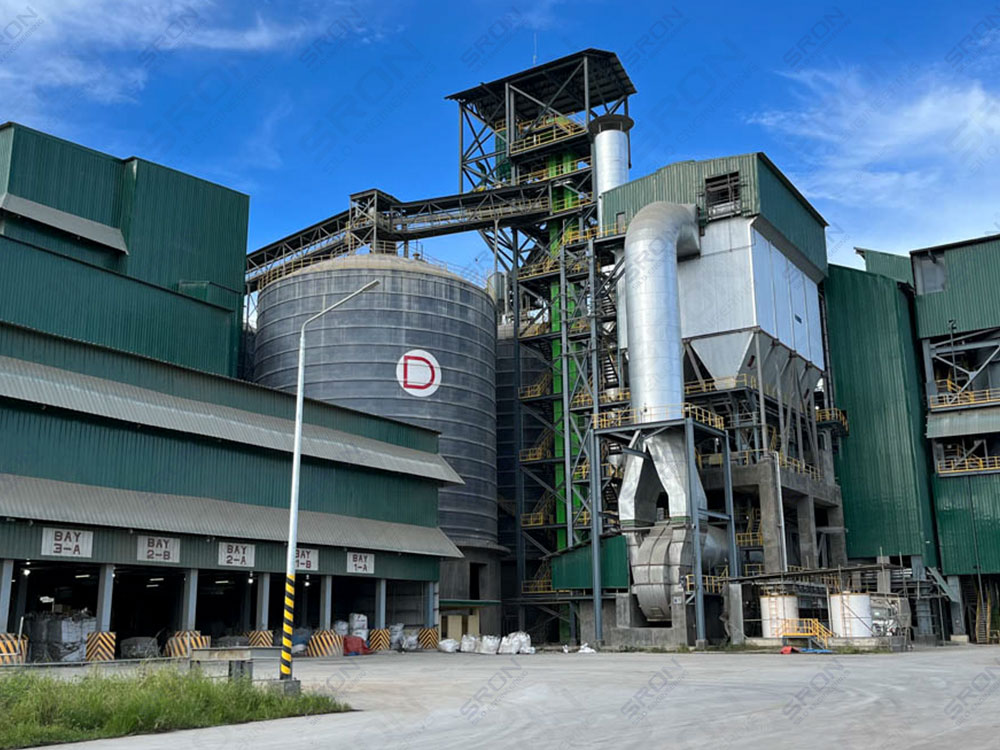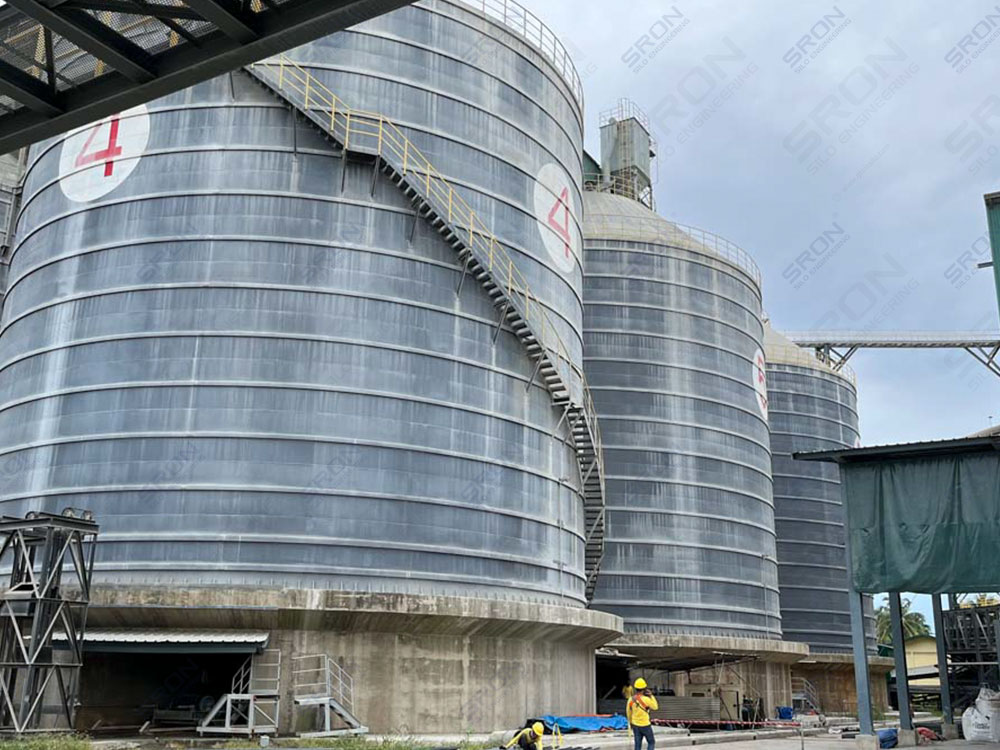How to Choose Steel Silo for Cement Plant to Store Cement
With the continuous and rapid development of engineering construction, the demand for cement is also increasing. The size and scale of cement plants are also increasing, resulting in continuous changes in the structure of cement plants. However, the storage problem of cement has been plaguing many manufacturers. Faced with the numerous steel silo suppliers in the market, when choosing a steel silo supplier, in addition to considering the performance and price of the product, you should also pay attention to the supplier's reputation and after-sales service to ensure that the selected steel silo can stably meet the needs of the cement plant in the long term.

Types of Steel Silos
The types of steel silos include welded, bolted and spiral. Each type has its own scope of application and characteristics. Welded steel silo is suitable for the needs of large storage capacity, good air tightness, long storage period and long life of the silo body. A single silo can store up to 100,000 tons of bulk materials, making it the first choice for storing cement, fly ash, etc. Bolted steel silo is suitable for storage requirements of single silo 50-5000t or less. It has the advantages of breathability, good ventilation, simple structure, short construction period and low price. Spiral steel silo is suitable for storage needs below 10,000 tons. It has good sealing performance and can store various powdery substances such as cement, fly ash, clinker, etc. However, compared with welded steel silo, spiral steel silo has a thin outer wall and a relatively short service life.
The types of steel silos include welded, bolted and spiral. Each type has its own scope of application and characteristics. Welded steel silo is suitable for the needs of large storage capacity, good air tightness, long storage period and long life of the silo body. A single silo can store up to 100,000 tons of bulk materials, making it the first choice for storing cement, fly ash, etc. Bolted steel silo is suitable for storage requirements of single silo 50-5000t or less. It has the advantages of breathability, good ventilation, simple structure, short construction period and low price. Spiral steel silo is suitable for storage needs below 10,000 tons. It has good sealing performance and can store various powdery substances such as cement, fly ash, clinker, etc. However, compared with welded steel silo, spiral steel silo has a thin outer wall and a relatively short service life.
.jpg)
Geographical Location and Climate Conditions
The construction of steel silos should take into account regional and geographical factors. For example, winter is a good time to inspect cement silos and fly ash silos. Gasification pipes, fluidization rods, fluidization tubes and other equipment in cement silo system can be inspected and replaced in winter. As the air in areas close to the coast is humid, the anti-corrosion and anti-rust properties of the steel silo need to be considered when choosing a steel silo.
Cement Storage and Management
The cement silo should ensure that different varieties and grades of cement are stored in separate silos to avoid mixing. Bulk cement should be stored in moisture-proof and leak-proof bulk warehouses, transfer warehouses or steel silos to ensure cement quality.
Factors to Consider When Choosing Welded Steel Silos as Storage Equipment for Cement Plants
Capacity and Specifications: According to the storage needs of cement, determine the type, capacity and specifications of steel silo. Therefore, factors such as daily cement consumption, storage cycle, and available space in the silo need to be considered.
Material Characteristics: Particle size, fluidity, dryness, corrosiveness and other properties of cement need to be considered. For example, for cement with poor fluidity, the difficulty of loading and unloading needs to be taken into consideration when designing welded steel silo,and then a suitable feeding and discharging method should be selected.
Material and Anti-corrosion Performance: The material of steel silo needs to have good corrosion resistance to ensure the quality and safe storage of cement. Especially in industrial environments such as cement plants, the requirements for corrosion resistance of materials are relatively high.
Structural Design: The structural design of steel silo needs to comply with the characteristics of cement to ensure that the cement will not agglomerate, condense, or undergo structural deformation during storage.
Quality Certification and After-sales Service: Choose steel silo suppliers with relevant quality certification and after-sales service systems to ensure product quality and after-sales service.
Construction and Installation: Choose a supplier with construction capabilities and experience to carry out the construction and installation of steel silo to ensure the stability and safety of cement steel silo.
Cost Consideration: Conduct a comprehensive assessment and consider the overall cost of steel silo, including equipment price, transportation costs, installation costs, maintenance costs, etc., and select a qualified steel silo supplier based on the actual needs of the cement plant.


Why Choose SRON as Cement Steel Silo Supplier?
As a cement steel silo storage system and solution service provider, SRON has rich experience and expertise in this field. We have a professional design and technical team that can customize steel silo solutions and EPC services for cement plants that meet their actual needs. SRON Company has contracted engineering projects in more than 30 countries and regions, and has achieved engineering achievements of more than 900 steel silo projects with a total bulk material reserve of 3 million tons.
We also provide clients with comprehensive after-sales services, including after-sales technical support, maintenance, spare parts supply, etc., which can provide clients with more comprehensive services and support. Therefore, if you are troubled by the cement plant steel silo storage solution, please contact us and we can provide you with free consultation services.

Comments
Post a Comment